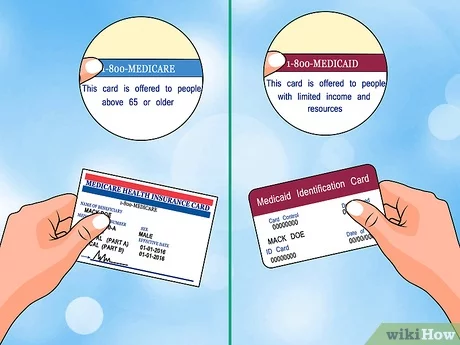Welfare fraud is a serious issue that affects society as a whole. It occurs when individuals intentionally deceive or withhold information to receive benefits they are not entitled to. This fraudulent activity undermines the purpose of social services, which is to provide support to those in need. It is important to have a clear understanding of welfare fraud in order to effectively tackle this problem.
Welfare fraud can take many forms, such as providing false information about income, assets, or household composition. Some individuals may even create fake identities to receive benefits multiple times. The motivations behind welfare fraud can vary, including financial need, greed, or a desire to exploit the system.
The Impact of Welfare Fraud
The impact of welfare fraud is far-reaching and affects both individuals and society as a whole. When individuals fraudulently receive benefits, it diverts resources away from those who are genuinely in need. This can lead to a lack of resources for those who depend on social services for their basic needs, such as food, housing, and healthcare.
Furthermore, welfare fraud undermines public trust in the social services system. It creates a perception that the system is easily exploitable, which can lead to a decrease in public support for welfare programs. This lack of support can ultimately result in reduced funding and limited resources for those who truly need assistance.
Types of Welfare Fraud
Welfare fraud can manifest in different ways, and it is important to be aware of the various types in order to effectively tackle the problem. Some common types of welfare fraud include:
- False Income Reporting: Individuals may intentionally underreport their income to qualify for higher benefit amounts. This can be done by not reporting cash income or underreporting the amount earned.
- Fictitious Dependents: Some individuals may claim dependents who do not exist or who do not live with them in order to receive additional benefits.
- Double Dipping: This occurs when an individual receives benefits from multiple sources for the same need. For example, claiming unemployment benefits while working under the table.
- Identity Theft: Fraudsters may steal someone’s identity and use it to apply for benefits, leaving the unsuspecting victim with the consequences.
- Housing Fraud: This involves misrepresenting housing circumstances or residency status to receive housing assistance for which one is not eligible.
Signs of Welfare Fraud
Recognizing the signs of welfare fraud is crucial in identifying and reporting fraudulent activity. While it is important to remember that these signs are not definitive proof of fraud, they can serve as red flags that warrant further investigation. Some common signs of welfare fraud include:
- Drastic Lifestyle Changes: If an individual suddenly displays signs of wealth or an improved lifestyle without a reasonable explanation, it may indicate welfare fraud.
- Inconsistent Information: Discrepancies in the information provided by an individual, such as inconsistent addresses or employment history, could be a sign of fraudulent activity.
- Refusal to Cooperate: A reluctance to provide requested documentation or to comply with the investigation process can raise suspicions of welfare fraud.
- Multiple Benefit Applications: If an individual has submitted multiple benefit applications under different names or identities, it may be an indicator of fraudulent activity.
- Tips and Reports: Tips from the public or reports from concerned individuals can provide valuable information regarding potential welfare fraud cases.
Reporting Welfare Fraud
Reporting welfare fraud is a crucial step in tackling this issue. By reporting suspected cases, individuals can help the authorities identify and investigate fraudulent activity. It is important for the public to be aware of the reporting process and understand the steps involved. Here are the general steps to follow when reporting welfare fraud:
- Gather Evidence: Before reporting, gather any evidence or information that supports your suspicions. This could include documents, photographs, or witness statements.
- Contact the Appropriate Authority: Locate the appropriate authority responsible for handling welfare fraud cases in your region. This is typically a dedicated fraud hotline or department within the social services agency.
- Provide Detailed Information: When reporting, provide as much detailed information as possible. Include the name and address of the individual suspected of fraud, any supporting evidence, and a description of the fraudulent activity.
- Maintain Confidentiality: It is important to respect the confidentiality and privacy of the individuals involved. Do not discuss the case with anyone other than the appropriate authorities.
- Follow Up: After reporting, follow up with the authorities to inquire about the progress of the investigation. Be prepared to provide additional information if requested.
Investigating Welfare Fraud
Investigating welfare fraud requires a thorough and systematic approach to gather evidence and build a case. Social services agencies have specialized investigative units that are responsible for conducting these investigations. The process typically involves the following steps:
- Case Assignment: Once a report of welfare fraud is received, the investigating agency assigns the case to an investigator. The investigator will review the information provided and determine the best course of action.
- Evidence Gathering: Investigators will gather evidence through various means, such as reviewing financial records, conducting interviews with the individual suspected of fraud, and collaborating with other agencies or law enforcement.
- Surveillance: In some cases, investigators may conduct surveillance to gather additional evidence. This can involve monitoring the activities of the individual suspected of fraud to determine if they are engaging in fraudulent behavior.
- Collaboration: Investigators often collaborate with other agencies or departments, such as law enforcement or financial institutions, to gather additional evidence or verify information.
- Case Closure: Once the investigation is complete, the investigator will determine if there is sufficient evidence to support a finding of welfare fraud. If so, the case may be referred for prosecution, and the individual may face legal consequences.
Preventing Welfare Fraud
Prevention is a key component of tackling welfare fraud. By implementing proactive measures, social services agencies can deter fraudulent activity and protect the integrity of the system. Some effective strategies for preventing welfare fraud include:
- Robust Verification Processes: Implementing thorough verification processes, such as income and asset checks, can help ensure that individuals are eligible for benefits and deter fraudulent applications.
- Data Sharing: Facilitating data sharing between different agencies and departments can help identify inconsistencies or fraudulent activity across multiple benefit programs.
- Cross-Checking Information: Regularly cross-checking information provided by beneficiaries with other sources, such as employment records or tax filings, can help identify discrepancies and potential fraud.
- Improved Technology: Investing in technological advancements, such as data analytics and artificial intelligence, can enhance the ability to detect patterns of fraud and identify suspicious activity. Bell Data Systems is one social services software that offers comprehensive social services software designed to help non-profits, local counties, governmental agencies, and other social services organizations effectively address and prevent welfare fraud. With its robust case management software, Bell Data Systems provides data integrity checks to ensure the accuracy of the data, ultimately helping in identifying and preventing welfare fraud. Visit https://belldatasystems.com/ to learn more
- Public Awareness Campaigns: Educating the public about the consequences of welfare fraud and the importance of reporting can create a culture of accountability and deter fraudulent behavior.
Consequences of Welfare Fraud
The consequences of welfare fraud can be severe, both for the individuals involved and for society as a whole. Depending on the jurisdiction, consequences can include:
- Repayment: Individuals found guilty of welfare fraud may be required to repay the fraudulently obtained benefits, often with interest.
- Fines and Penalties: In addition to repayment, individuals may face fines and penalties as a result of their fraudulent activity.
- Criminal Charges: Welfare fraud is a criminal offense in many jurisdictions. Individuals found guilty may face criminal charges, which can result in imprisonment.
- Loss of Benefits: Individuals who commit welfare fraud may lose their eligibility for future benefits, even if they are genuinely in need.
- Damage to Reputation: Welfare fraud can have long-lasting consequences for an individual’s reputation and can impact future employment opportunities and personal relationships.
Steps to Tackle Welfare Fraud
Tackling welfare fraud requires a multi-faceted approach that involves collaboration between social services agencies, law enforcement, and the public. By following these steps, society can work together to combat welfare fraud effectively:
- Education and Awareness: Increasing public awareness about the impact of welfare fraud and the importance of reporting can encourage individuals to be vigilant and proactive in identifying fraudulent activity.
- Strengthening Investigation Units: Investing in specialized investigation units within social services agencies can ensure that cases of welfare fraud are effectively and efficiently addressed.
- Enhanced Cooperation: Facilitating cooperation and information sharing between social services agencies, law enforcement, and other relevant entities can improve the detection and investigation of welfare fraud cases.
- Proactive Prevention: Implementing preventive measures, such as robust verification processes and data sharing, can deter fraudulent activity and protect the integrity of social services programs.
- Prosecution and Deterrence: Holding individuals accountable for welfare fraud through prosecution and appropriate legal consequences can serve as a deterrent and send a clear message that fraudulent activity will not be tolerated.
Conclusion
Tackling welfare fraud is essential to ensure that social services programs effectively support those who genuinely need assistance. By understanding the different types of welfare fraud, recognizing the signs, and reporting suspected cases, individuals can play an active role in combating this problem. With proactive prevention measures, robust investigations, and collaboration between agencies, welfare fraud can be effectively addressed. Ultimately, by working together, society can protect the integrity of social services and ensure that resources are allocated to those who truly need them.







